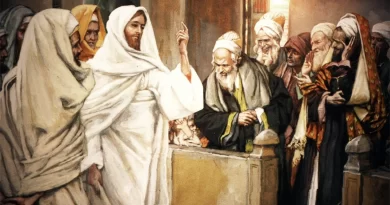The story of the continued division of the land – भूमि के निरंतर विभाजन की कहानी
The story of the continued division of the land refers to the allocation of the Promised Land (Canaan) to the tribes of Israel after their conquest of it, as detailed in the Book of Joshua, specifically from chapters 13 through 21. The story emphasizes God’s faithfulness to His covenant with Abraham, Isaac, and Jacob, promising that their descendants would inherit the land.
After the Israelites, under the leadership of Joshua, had won significant battles against the Canaanite kings, the land was not fully conquered. There were still pockets of resistance and remaining territories to be subdued. However, God instructed Joshua to proceed with the division of the land among the twelve tribes of Israel.
Despite the successful conquests, God pointed out to Joshua that there were still regions that needed to be conquered (Joshua 13:1-7). These included areas such as the land of the Philistines, the Geshurites, and parts of Lebanon. However, God assured Joshua that He would drive out the remaining nations.
Before the Israelites crossed the Jordan River, two and a half tribes (Reuben, Gad, and half of the tribe of Manasseh) had already received their inheritance on the eastern side of the Jordan (Joshua 13:8-33). This land was given to them under Moses’ leadership.
One of the most faithful of the Israelites, Caleb, came to Joshua and reminded him of God’s promise to him. Forty-five years earlier, Caleb had been one of the spies who believed that God would give them the land, despite the giants living there. As a result of his faithfulness, Caleb was promised a specific portion of the land. Joshua honored this and gave Caleb Hebron (Joshua 14:6-15), which Caleb went on to conquer despite his advanced age.
The rest of the land west of the Jordan was divided among the remaining tribes. Joshua, along with the high priest Eleazar, cast lots to determine which portions of the land would go to each tribe (Joshua 15-19). This method of division was seen as a way to ensure that God’s will directed the inheritance.
Judah received a large portion in the south, including Jerusalem. Ephraim and the other half of Manasseh received land in the central hill country. Benjamin, Issachar, Zebulun, Asher, Naphtali, and Dan all received various portions in different parts of the land. Levi, the priestly tribe, did not receive a specific region as their inheritance, as God Himself was their inheritance. Instead, they were given specific cities and their surrounding pasturelands to live in (Joshua 21).
As part of the division, God instructed Joshua to designate cities of refuge (Joshua 20). These cities were established as places where someone who had accidentally killed another person could flee for protection until they stood trial, ensuring justice was done fairly.
After the division was complete, the Bible states that God fulfilled His promise to the Israelites (Joshua 21:43-45). The Lord gave them the land, rest from their enemies, and kept all His promises to Israel.
The continued division of the land symbolizes God’s faithfulness to His promises and His desire for order and justice among His people. Each tribe received its inheritance, and God’s people were called to live in peace, obedience, and gratitude for the blessings they had received. Despite their past rebellion and wanderings in the desert, God remained true to His word.
The division of the land marks the culmination of God’s promise to the ancestors of Israel. However, it was also a beginning—a call for the tribes to settle, build, and continue living in faithfulness to God’s commands. Even though there were still enemies in the land, God’s instructions made it clear that if the Israelites remained faithful, they would fully possess their inheritance.
The story of the continued division of the land – भूमि के निरंतर विभाजन की कहानी



